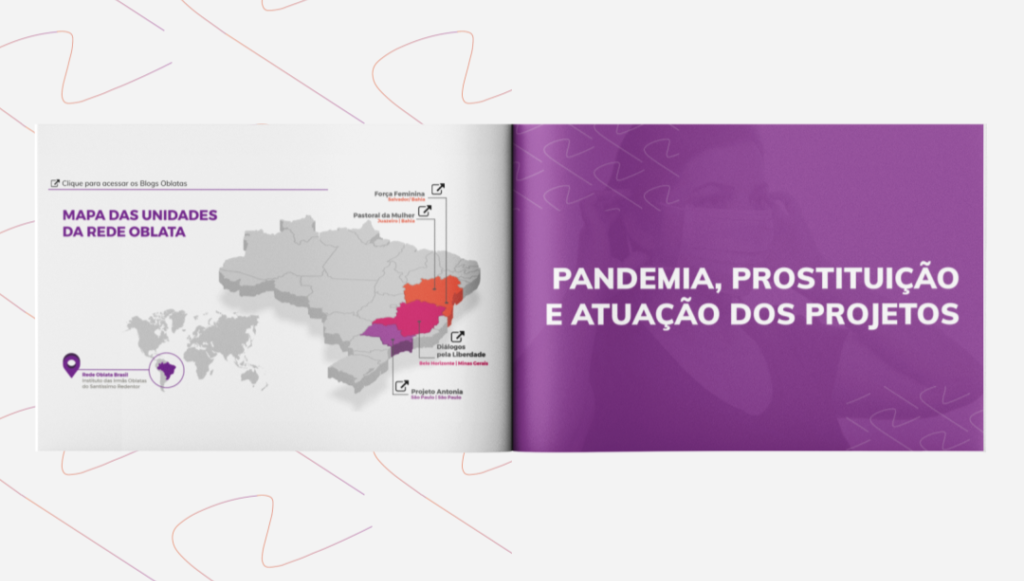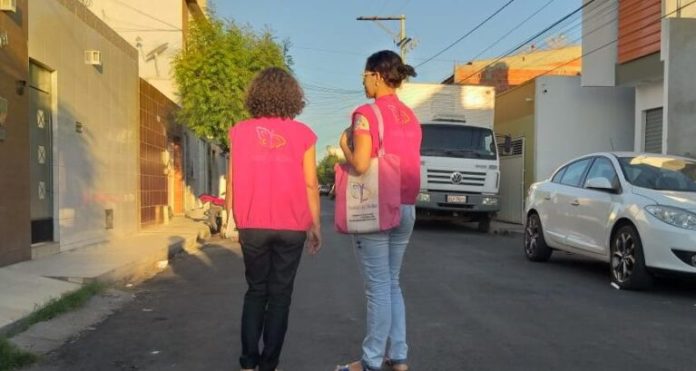The activity report of the Oblate Network Brazil was developed at a historic moment. The year 2020 negatively surprised humanity with the massive spread of a lethal virus.
The new variant of the coronavirus, the cause of Covid-19, meant that the countries were suddenly confronted with an invisible enemy, but one with the power to disrupt the most varied layers of the public and private spheres.
In Brazil, the scenario became challenging because, in addition to the structural and systemic problems, the pandemic aggravated the economic, social and political crisis already faced by the country, reinforcing the inequalities and social vulnerabilities of the population. The accentuation of the feminisation of poverty was corroborated by a consequent increase in the number of women entering or returning to prostitution.
This new social context demanded from the Oblate Network Brazil, present in different parts of the country (Belo Horizonte/MG; Juazeiro/BA; Salvador/BA; São Paulo/SP) the capacity to adapt to the new forms of work, using creative and dynamic tools to give continuity to the care of the women, guaranteeing conditions of access to the network of social policies and others.
In this way, the main results achieved are presented and the advances and challenges of this period. It is worth noting that the compilation of the data counted on the contribution of all the Units of the Oblate Brazil Network through the analysis of their records and systematizations collected during the year 2020.

SOLIDARITY AND SOCIAL ARTICULATION
In this context, forming a stream of solidarity from society in general, churches, organizations and collectives, for the distribution of food, hygiene products, cleaning products, clothes and masks, was essential. Groups and movements provided free online psychological and psychiatric care.
Faced with this challenging scenario, it is necessary to continue the work of the Oblate Network, seeking to guarantee, through social articulation and political advocacy, the access of women to public policies, thus minimizing the impacts caused by the pandemic.
Access the report and read online here (Portuguese).






